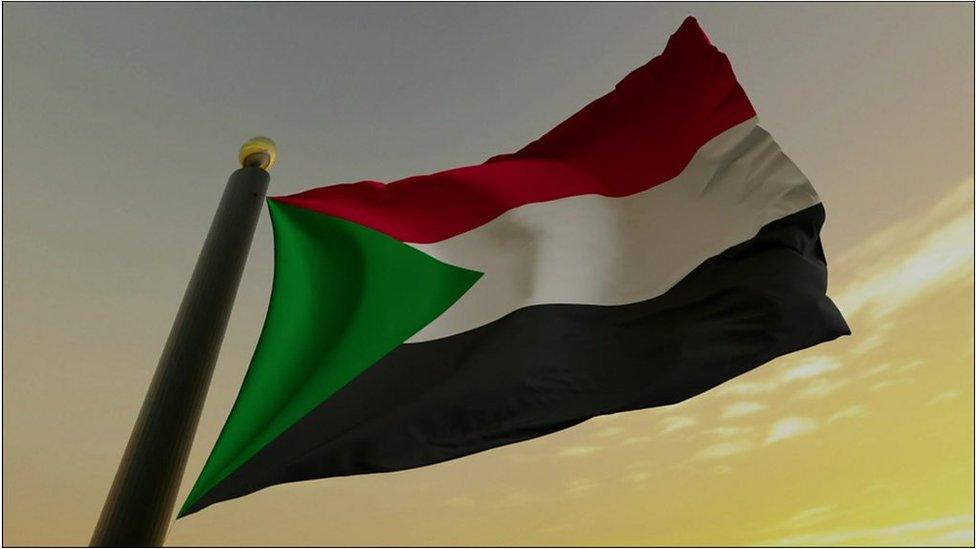What's happening in Sudan?
- Published
- comments
Sudan: What's happening in the country?
Military flights have allowed some British citizens in Sudan to leave, as violence between two large armed groups continues to affect the county.
Fighting broke out in the country's capital Khartoum last month between two rival armies over control of the country.
The violence has now spread to other parts of the nation; although an unstable ceasefire to allow aid to arrive and people to leave safely is in place. A ceasefire is when both sides agree to pause fighting for a limited time.
Electricity is scarce, and food and water supplies are running out for many, and tens thousands of Sudanese people are fleeing to try to find safety in neighbouring countries.
Where is Sudan and what's been happening there?
BBC reporter Sally Nabil reports on refugees fleeing Sudan for Egypt
Sudan is a huge country in north-east Africa and it shares borders with Egypt, Libya, Chad and Ethiopia.
It's home to part of the Sahara, one of the world's largest deserts, and the Nile - the world's longest river.
The country has a complex history and it's been in the news recently because fighting has broken out again.
Sudan is a country where the military has often been in control. There has been war and violent changes of leaders since it became independent from the British Empire in 1956.
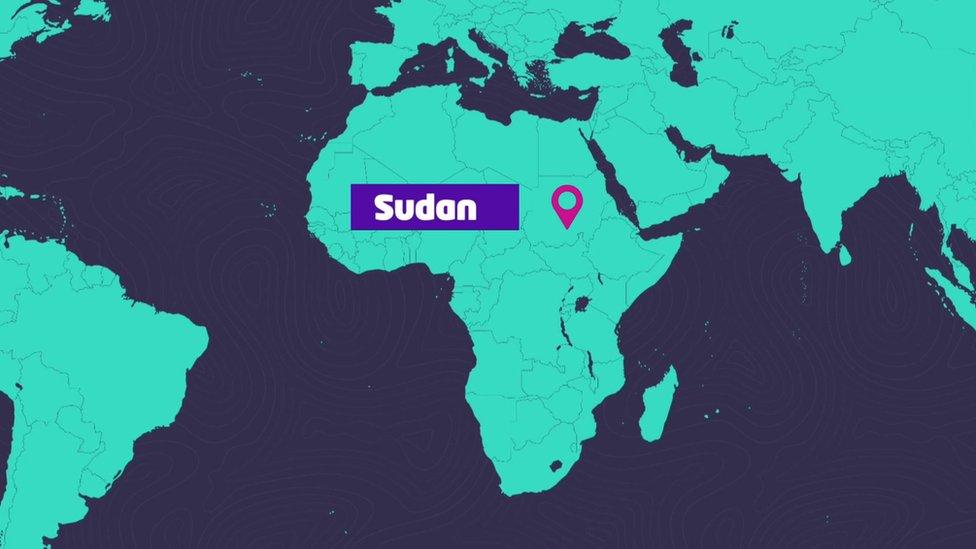
The current violence can be traced back to two rival Sudanese armies and their leaders who are are struggling over who is in charge.
It is the people of Sudan who have been impacted the most by the fighting and they have little say about how the country is run.
As well as people being in danger from the battles, it is difficult for hospitals to get supplies or for children to go to school at the moment.
Countries around the world are calling for the fighting to stop, charities are trying to provide support and a number of countries are trying to evacuate their citizens from Sudan.
What is the UK government doing?
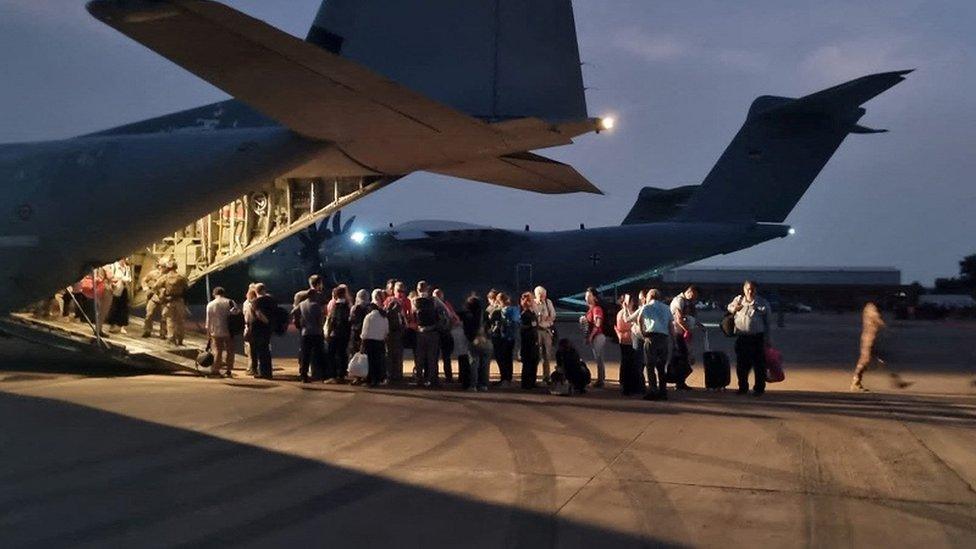
Lots of countries have taken steps to remove their citizens from Sudan
A growing list of countries have removed their representatives and citizens from Sudan's capital Khartoum as fighting continues in the country.
The US and UK announced on 30 April they had flown diplomats out of the country.
The UK government put on military flights to help British people from Sudan leave on a "priority basis" - with families with children, the elderly and people with medical conditions will be helped first.
So far 23 flights have airlifted more than two thousand British passport holders and NHS staff with UK work permits out of the African country to escape fighting.
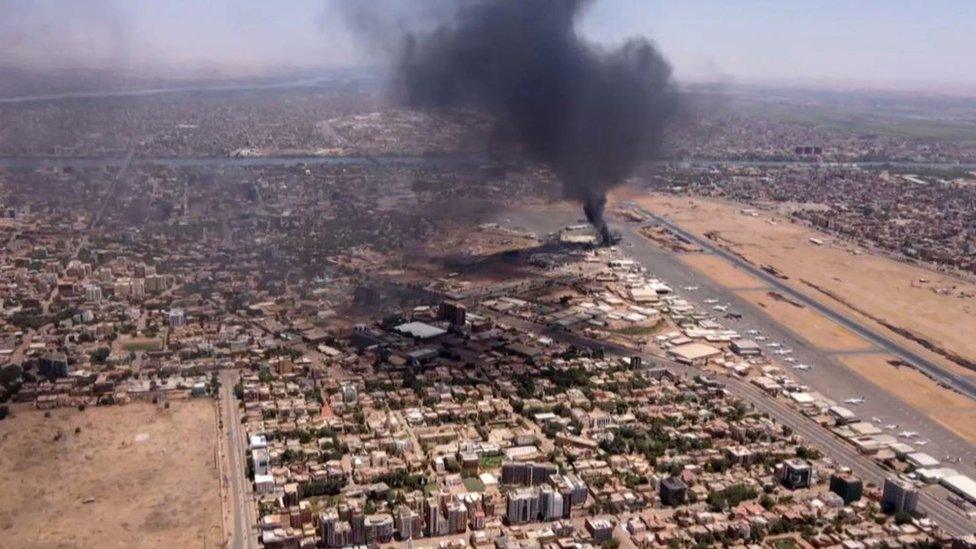
The fighting in Sudan has affected the country's capital Khartoum and beyond
What about Sudanese citizens?
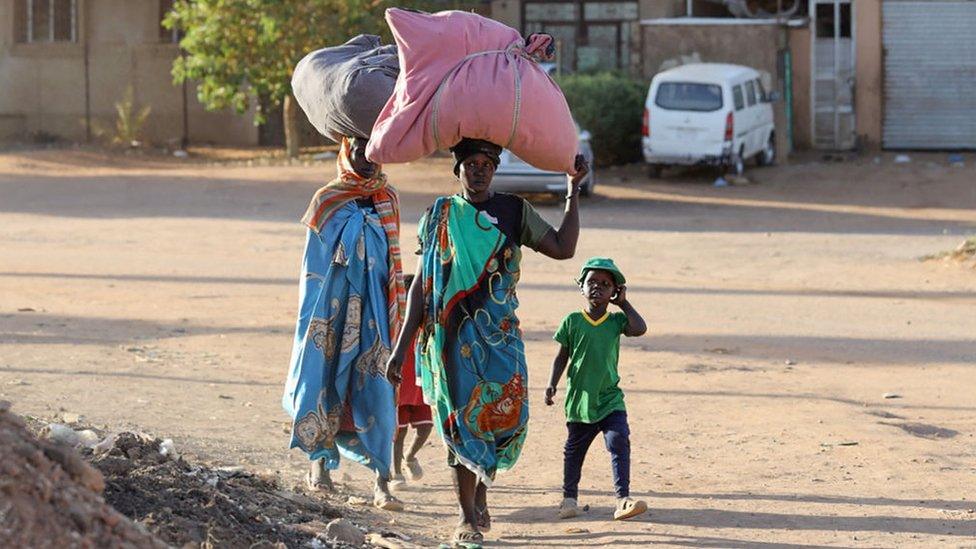
Lots of people in Sudan have had to leave their homes to escape the fighting
Between 10,000 and 20,000 Sudanese citizens are believed to have fled to neighbouring country Chad to escape the fighting between the country's rival armies, according to the United Nations' World Food Programme (WFP) in Chad.
Most of the people crossing the border are said to be women and children.
The head of the WFP in Chad said he expects to see more refugees fleeing across the border from Sudan to escape the fighting.
"We are expecting more waves, that is certain. Immediately, when there will be a security window for them to come. There are major towns near the border and those there have not been able to move," said Pierre Honnorat who is the director of the WFP in Chad.
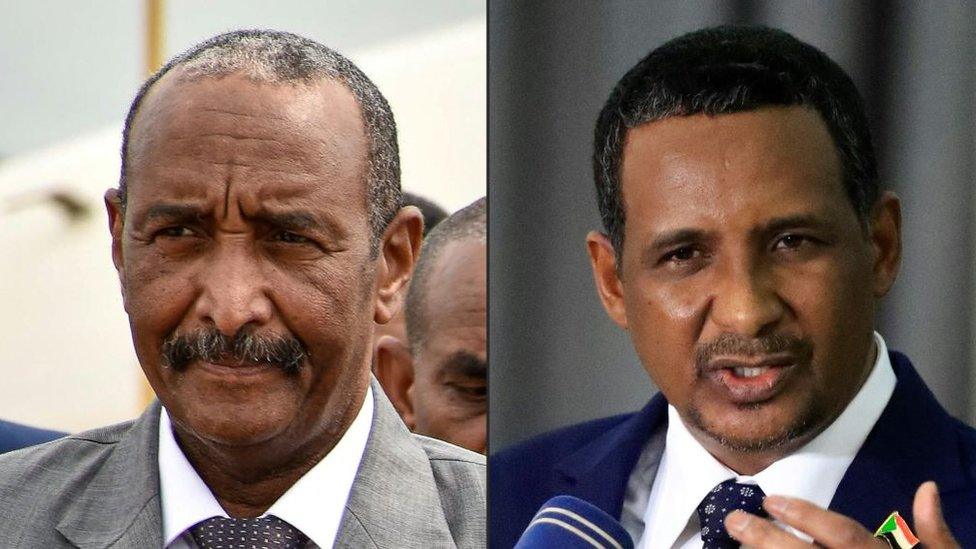
Lieutenant-General Abdel Fattah al-Burhan (left) and Mohamed Hamdan Daglo (right) are in charge of Sudan's rival armies
"The World Food Programme is going to prepare to welcome at least 100,000. It is probable that there could be more, so we have to be ready."
"I am calling on all parties to the conflict to implement humanitarian pauses and cease hostilities to allow civilians, including aid workers, to move to safety, replenish their supplies and access essential items such as food and water."
- Published13 June 2019
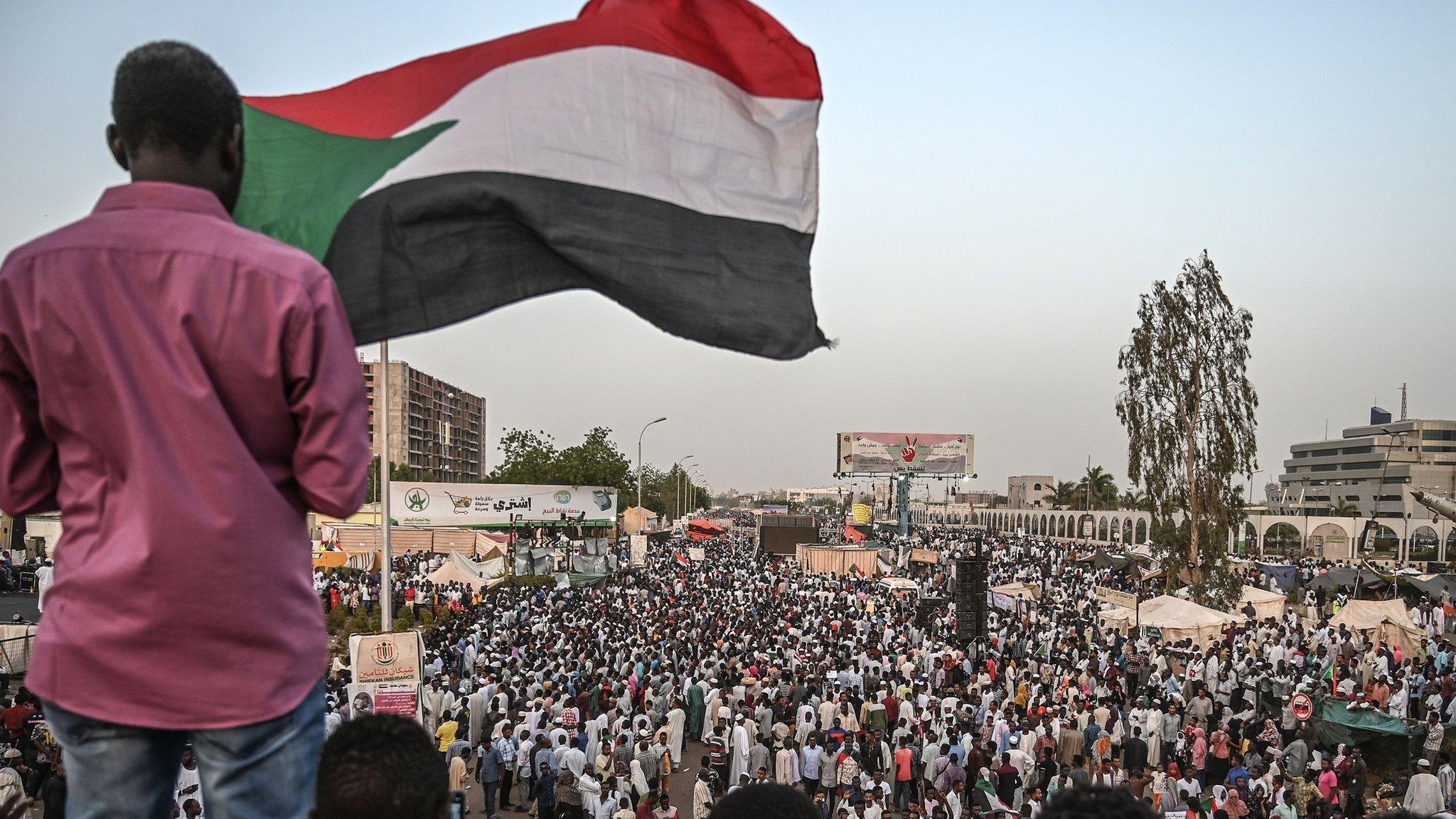
- Published27 October 2021
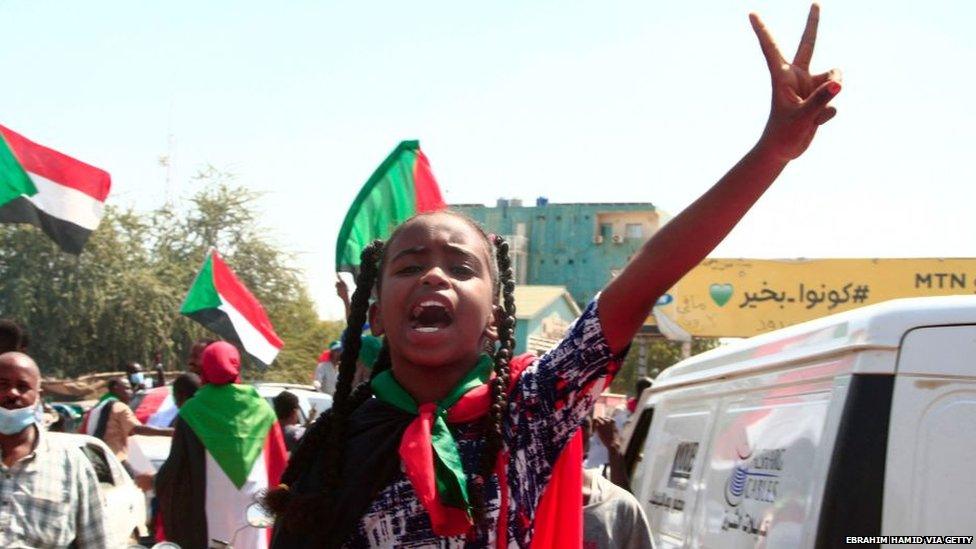
- Published18 April 2023
